Collaborations
The Dragoman Renaissance Research Platform began as a set of haphazard databases and text files created by Natalie Rothman as part of her doctoral dissertation work at the University of Michigan (1999-2006), and has continued to the present in various permutations. Over the years, it has involved many individuals in a range of capacities, from casual interlocutors and commentators on oral presentations and written papers to long-term research team members and full-fledged partners. This page can only begin to acknowledge the profoundly collaborative nature of this project, and the many debts it has incurred along the way.
![]()
The UTSC Library's Digital Scholarship Unit has been a proud collaborator on this project—and is responsible for developing and maintaining its technical infrastructure—as part of its overall mandate to provide UTSC-specific support for digital scholarship in the areas of data, the digital humanities, digital collections building, digital archiving, and scholarly communications.
Earlier models for the project's architecture were provided by Travis McCauley and Geoff Piersol. The banner was designed by Andrew Robinson.
Past and Present Research Associates
Ted Adamo is a doctoral candidate in the department of History at the University of Toronto completing a dissertation on Ottoman paperwork and governance in the seventeenth century. Ted transcribed and translated Ottoman archival materials for the project.
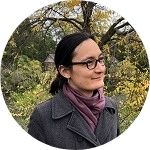
Nick Field is the Reference Specialist at the Map & Data Library, University of Toronto Libraries, and also a PhD Candidate at the Department for the Study of Religion at the University of Toronto. They are currently researching maps, produced by the archaeologist Sir Aurel Stein, of Buddhist sites in western China in the early twentieth century.
Nick helped develop the network graphs and kinship charts for The Dragoman Renaissance and provided bibliographic support.

Erdem Idil is a PhD candidate in History at the University of Toronto. His dissertation project focuses on connected histories of the Ottoman and Venetian Empires to explore the relationship between space and alterity in seventeenth-century Istanbul and Venice. Before coming to Toronto, he completed a BA in Political Science and International Relations at Istanbul University and an MA in History at Boğaziçi University.
Since 2020, Erdem has been contributing to the transcription, editing, and digital remediation of archival materials in Ottoman Turkish and Italian.

Dr. Mehmet Kuru completed his PhD in History at the University of Toronto in 2017 and now teaches at Sabancı University, Turkey. Currently, he is working on a book manuscript, tentatively titled Empire in Crises: Environment and Economy in the Early Modern Ottoman Empire. Dr. Kuru has recently begun two new projects, both of which have received funding from The Scientific and Technological Research Council of Turkey. The first concerns Turkish translations of Aesop’s Fables from the sixteenth to the eighteenth century; the second looks at seventeenth-century Ottoman/Tuscan customs officers/merchants. Dr. Kuru digitized, databased, summarized, translated, and transliterated Ottoman language documents from archives in Turkey, Italy, and the UK.
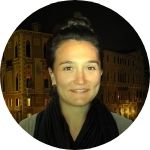
Giovanna Licata, a doctoral student in the Department of Italian at the University of Toronto, transcribed Italian documents from the Venetian State Archives.
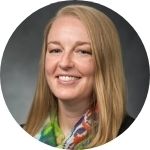
Dr. Sarah Loose is an Assistant Professor of History at Brigham Young University, whose research focuses on Italian charitable institutions in the fourteenth-sixteenth centuries. Her current project is Sienese Hospitals Within and Beyond the City Walls: Charity and the Ospedale di Santa Maria della Scala,1400-1600, a monograph forthcoming in 2022 with ARC Humanities Press.
Dr. Loose transcribed and databased documents from the Venetian State Archives, and helped with the curation and analysis of other Italian-language research materials.

Dr. Vanessa McCarthy is an historian and a Fellow at the Centre for Renaissance and Reformation Studies, University of Toronto, and has taught at the University of Toronto and Queen’s University, Kingston. Her current research explores the flexibility and negotiations of masculinity via the study of middling-sort and working-poor male clients of female sex workers in early modern Bologna.
A member of the Trans-Imperial Archives project team since 2018, Dr. McCarthy has been primarily responsible for data entry, data cleaning, and transcribing Italian translations of Ottoman official records collated by the Venetian bailate chancery in Istanbul, now held in the Venetian State Archive.
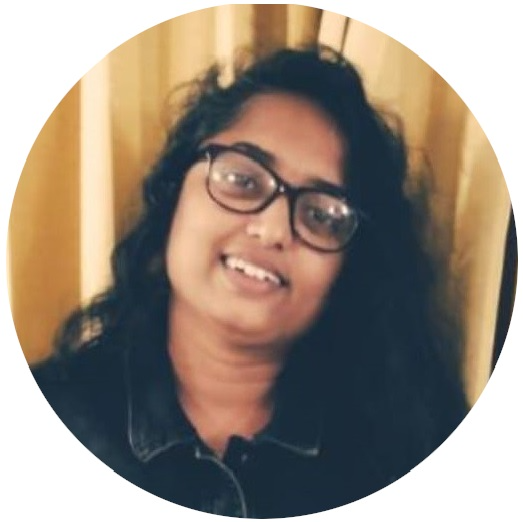
Dr. Shanmugapriya T is a Digital Humanities Postdoctoral Scholar in the Department of Historical and Cultural Studies at UTSC. Her research and teaching interests include an interdisciplinary focus in the areas of digital humanities, digital environmental humanities and digital literature. She is particularly interested in building and applying digital tools and technologies for Humanities research. As part of the Dragoman Renaissance research team, she is exploring the analytical affordances of mining the corpus’ Italian transcriptions to better understand translation practices. She is currently preparing a model for extracting genre terms (including alternate spellings and contractions) for further study.

Dr. Murat Yaşar is an Associate Professor of History at the State University of New York at Oswego. His research focuses on the North Caucasus borderland in the early modern era.
Dr. Yaşar summarized, translated, and transliterated Ottoman language documents from the series of Carte turche in the Bailo a Costantinopoli section of the Venetian State Archives.
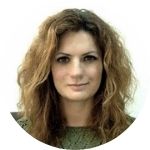
Dr. Gülay Yılmaz is an Associate Professor at the Department of History at Akdeniz University. She completed her PhD at McGill University in 2011 and has held a SSHRC doctoral fellowship (Canada), an RCAC residential fellowship (Koç University) and a Fulbright Visiting Scholarship (CMES, Harvard University). Her current research focuses on the recruitment process of the early modern devşirme system in the Ottoman Empire, enslavement, and coerced labour. She is the co-editor with Fruma Zachs of Children and Childhood in the Ottoman Empire (15th-20th Centuries), forthcoming with Edinburgh University Press.
Dr. Yılmaz transcribed, summarized, annotated, and translated sixteenth- and seventeenth-century Ottoman documents from the series of Ecnebi Defterleri (“Registers of Foreigners”) in the Prime Minister’s Archives in Istanbul.
Scholars in Residence Undergraduate Fellows (2021):
In May 2021 the following undergraduate students at the University of Toronto participated in a month-long virtual Scholars in Residence program, Diplomatic Translation in Early Modern Istanbul: Digital Remediation, Analysis, and Visualization. As part of the program, they helped populate the shell digital platform for The Dragoman Renaissance 2.0. In addition to data (text and image) manipulation, the students also identified additional multimedia objects to be incorporated into the platform and created the blueprint for future interactive mapping visualizations.
Qaasim Karim studies history and international relations. He is interested in the intellectual and cultural history of the early modern period, especially that of the Venetian Republic.
Tessa Di Vizio studies International Relations, Political Science, and History. She is especially interested in researching the global Cold War, identity and nationalism, and memorialization of the past and hopes to pursue graduate studies in these historical areas.
Jacaranda (Shiqi) Yu studies Arts Management at the University of Toronto Scarborough with two minors in Art History and Theatre and Performance Studies. She has worked previously with Wavelength Music, Prefix Institute of Contemporary Art, LLB Theatre, and Gallery 1265.
Lee Jiang is majoring in linguistics and anthropology. His research interests lie in historical linguistics, or the changes in languages over time, and their relation to the characteristics of the society in which the languages exist.
Undergraduate Co-Op students (2020-2021):
Past undergraduate research assistants
-
Sanja Ljaskevic
-
Oleg Lavriv
-
Bindya Jairam
-
Matthew Kurtcu
-
Grant Waynmouth
-
Ibrahim Ibrahimov
Other Co-Conspirators
Tijana Krstić has accompanied the project from its inception, providing much-needed grounding in Ottoman historiography, and both practical, linguistic, and intellectual support during an archival research trip through Croatia (Dubrovnik, Zadar), Slovenia (Koper), and Italy (Venice) in 2010 which resulted in the digitization of much of the corpus presented and analyzed here. Günhan Börekçi, Ahmet Arslantürk, Kathryn Taylor, and Vera Costantini have all provided additional assistance with accessing and digitizing archival materials in the Archivio di Stato di Venezia (Venetian State Archives) and the Başbakanlık Osmanlı Arşivleri (Office of the Prime Minister Ottoman Archives) in Istanbul in the years since then. Karen-edis Barzman masterminded a road trip from Venice to Zadar in 2016 that facilitated additional research and digitization of collections in the Dragomans’ Fonds in the Zadar State Archives.
Less tangible but immensely pertinent movement on the project was occasioned through various forms of oral and written scholarly communication. Not all interlocutors can be acknowledged here, but a special debt of gratitude goes to the following individuals for their insights and words of advice: Danna Agmon, Virginia Aksan, Gadi Algazi, Benny Arbel, Megan Armstrong, Marc Aymes, Günhan Börekci, Marie Bossaert, Ben Brumfield, Palmira Brummett, Guillaume Calafat, Clare Carroll, Georg Christ, John Christopoulos, Libby Cohen, Tom Cohen, Jocelyne Dakhlia, Bruno De Nicola, David Do Paço, Eric Dursteler, Tolga Esmer, Emine Fetvacı, Paula Findlen, Elisabeth Fraser, Antoine Gautier, Maartje van Gelder, John-Paul Ghobrial, Claire Gilbert, Dena Goodman, Toby Graf, Mathieu Grenet, Aslı Gürbüzel, Gottfried Hagen, Will Hanley, Randy Head, Daniel Hershenzon, Diane Owen Hughes, Mariusz Kaczka, Gábor Kármán, Rajeev Kinra, Cristian Luca, Ron Makleff, Nabil Matar, Vesna Miović, Ed Muir, Serap Mumcu, Carla Nappi, Laurie Nussdorfer, Nil Palabiyik, the late Maria-Pia Pedani, Leslie Peirce, James Pickett, Helmut Puff, Valentina Pugliano, Giorgio Rota, Federica Ruspio, Cesare Santus, Oliver Jens Schmitt, Ana Sekulić, Nir Shafir, Housni Shehada, Henning Sievert, Amy Singer, Dan Smail, Elżbieta Święcicka, Emmanuel Szurek, Baki Tezcan, Marko Trogrlić , Toni Veneri, Polona Vidmar, Filippo de Vivo, Margarita Voulgaropoulou, Veruschka Wagner, Josh White, Tom Willette, Ali Yaycioğlu, and Selma Zecevic. Fiorella Foscarini, Guy Burak, and Heather Ferguson continue to be key interlocutors.
Institutional acknowledgments
Research for this project has been undertaken in archives and libraries in Italy, Turkey, Croatia, Slovenia, France, Germany, Russia, and the United States, and has benefited from access to digitized collections in all these countries, as well as in the UK, the Netherlands, and Austria. Special thanks to Dr. Daria Vasilyeva, head of the Byzantium and the Middle East Section of the Oriental Department of the State Hermitage Museum in St. Petersburg, for her kind invitation and exceptional hospitality, and to Dr. Lupold von Lehsten, deputy director at the Institut für Personengeschichte in Bensheim, Germany. Additional thanks to Dr. Vltava Muk, curator at the Museum of the Poreč Territory (Croatia), for facilitating access to digital reproductions of portraits in the museum holdings, and to Dr. Luka Juri, director of the Koper Regional Museum (Slovenia), for kind permission to reproduce portraits from that collection as well.
At the University of Toronto Scarborough, thanks go to Frank Tong in Interlibrary Loan services at the UTSC Library, and to Laurel Wheeler, Monica Hretsina, Minda Nessia, and Ashfak Khan for their invaluable administrative support for this project through the Department of Historical and Cultural Studies. Keti Dzamova and Jennifer Niu of the University of Toronto's Research Services Office and Sharon George and Shaun Young of the Office of the Vice-Principal, Research at UTSC have offered further timely assistance with grant application and administration.
Finally, this project would not have been possible without substantial and ongoing institutional support. A Connaught Summer Institute grant (2011-2013) allowed several team members to gain valuable training in digital scholarship methods, while a Jackman Humanities Institute fellowship (2012) provided teaching release time at an earlier phase of the project. Research funds were also generously provided by a SSHRC Standard Research Grant (2008-2011) and a SSHRC Insight Grant (2020-2024), a year-long Mellon fellowship at the Newberry Library (2009), a UTSC VPR Research Competitiveness Fund, and an Early Researcher Award from the Ontario Government (2012-2016).


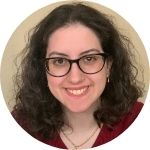
%20Yu.jpeg)
